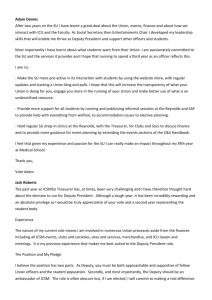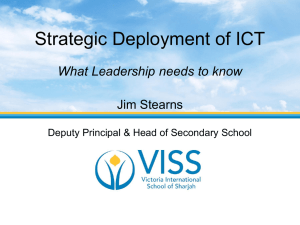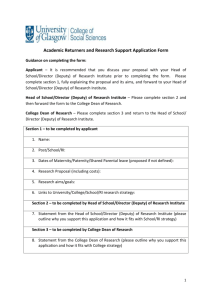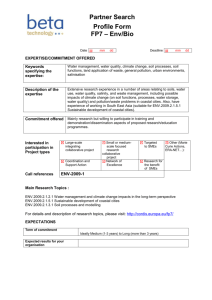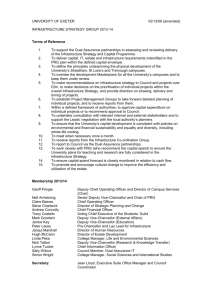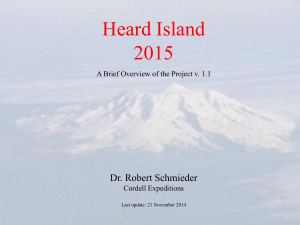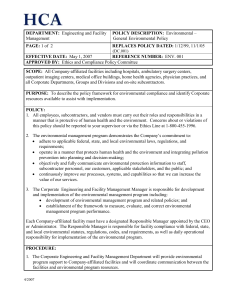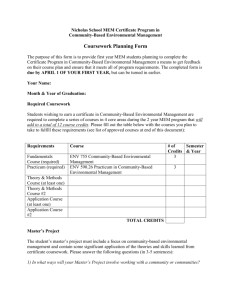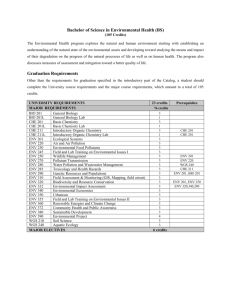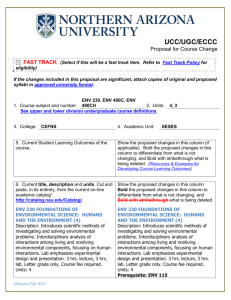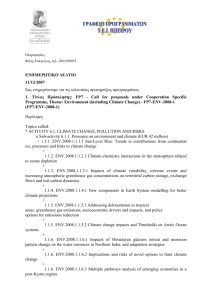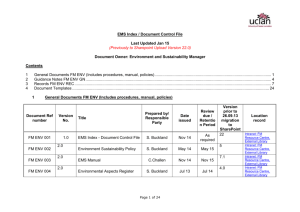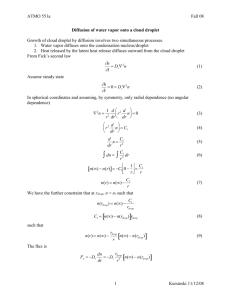Environmental Strategy - York St John University
advertisement
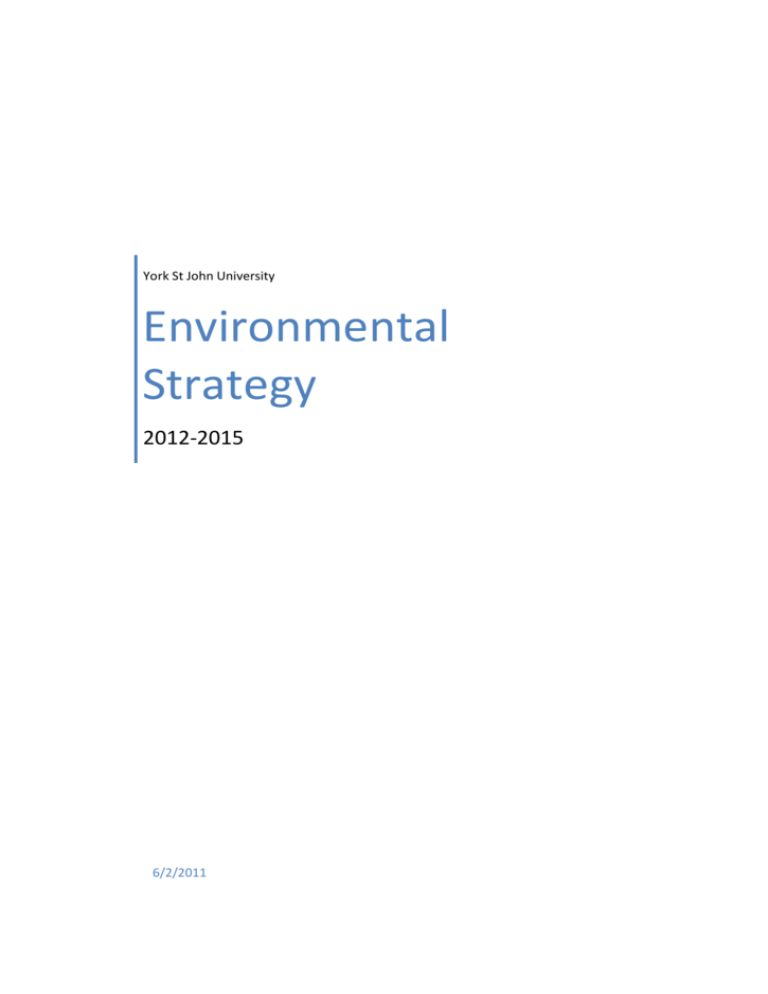
York St John University Environmental Strategy 2012-2015 6/2/2011 Mission York St John is committed to the provision of excellent, open and progressive higher education that embraces difference, challenges prejudice and promotes justice, and is shaped by York St John’s Church foundation. Vision Exceptional Learning & Teaching | Exceptional Student Experience | Exceptional Graduates Values Progressive | Transforming | Relevant | Approachable | Inclusive 1. Aim of the strategy To set an example of best practice within the sector and community and progressively to reduce the University’s environmental impact. 2. Key objectives Key Objectives for 2012-15: a. Enhance the sustainability of the University’s estate in terms of carbon emissions, environmental and energy management standards. b. Reduce carbon emissions arising from other University activities, both directly and through our procurement activities. c. Minimise the environmental impact of travel associated with University activities. d. Minimise the generation of waste, emissions and discharges, by increasing reuse and recycling rates and managing external contracts accordingly. e. Support the integration of education for sustainable development into our academic provision. f. Raise awareness of our policies, actions and successes amongst staff, students and the wider community. 1 3. Achieving the objectives Objective f Target or Activity Increase our engagement with the Students’ Date 2015 Responsibility Chief Operating Officer; Union and students in general, to Director EM&D; communicate the work we are doing in this Deputy Director EM&D; area, and to encourage and provide Energy & Env. Manager opportunities for partnership. a e Adopt a methodology for including whole life 2015 Chief Operating Officer; costing and other long-term considerations Director EM&D; into all construction, refurbishment and Deputy Director EM&D; major procurement projects. Energy & Env. Manager Encourage all Faculties to consider the 2015 Chief Operating Officer; DVC; relevance of environmental issues within the Deputy Vice Chancellor; curriculum and the possible benefits of Deans; Director EM&D; relevant staff / student research projects to Energy & Env. Manager inform developments. d Maximise the reuse and recycling of waste 2015 Chief Operating Officer; materials generated from our operations Director EM&D; through targeted campaigns, better site Deputy Director EM&D; waste management, and having higher Energy & Env. Manager expectations of contractors. b Ensure that utilities management systems are 2015 Chief Operating Officer; optimised to minimise carbon emissions and Director EM&D; financial cost to the University and students. Deputy Director EM&D; Energy & Env. Manager a Work with all relevant parties towards an 2015 effective policy to manage space efficiently. Chief Operating Officer; DVC; Deans; Director EM&D; Deputy Director EM&D; c Develop and adopt a travel plan that 2015 Energy & Env. Manager Chief Operating Officer; PVC encompasses all travel impacts over which (Development); Director the University has direct influence. EM&D; Deputy Director EM&D; Energy & Env’ Manager 2 b Ensure that the Carbon Management Plan is 2015 Chief Operating Officer; regularly reviewed and updated with key Director EM&D; projects as costs and technologies change, Deputy Director EM&D; with priority given to projects that will deliver Energy & Env. Manager financial savings alongside carbon savings. a Increase partnerships and explore 2015 Chief Operating Officer; opportunities for shared approaches to Director EM&D; Deputy service provision and procurement. Director EM&D; Energy & Env. Manager f Improve our ranking within the Higher 2015 Chief Operating Officer; Education Community with respect to Director EM&D; Deputy environmental performance. Director EM&D; Energy & Env. Manager 4. Risks for the achievement of the strategy Some environmental targets are vulnerable to national policies. Improvements in many environmental areas require behavioral change, which is difficult to initiate and maintain. Major projects require adequate planning periods and high level commitment to maintain environmental standards through to completion. Without project specific targets and standards, University expansion may work against the goals of this strategy. 5. Document control Principal responsibility: Strategy approved by: Strategic Leadership Team Academic Board Board of Governors PVC Resources Date 30/09/2011 26/01/2012 08/02/2012 12/03/2012 3
